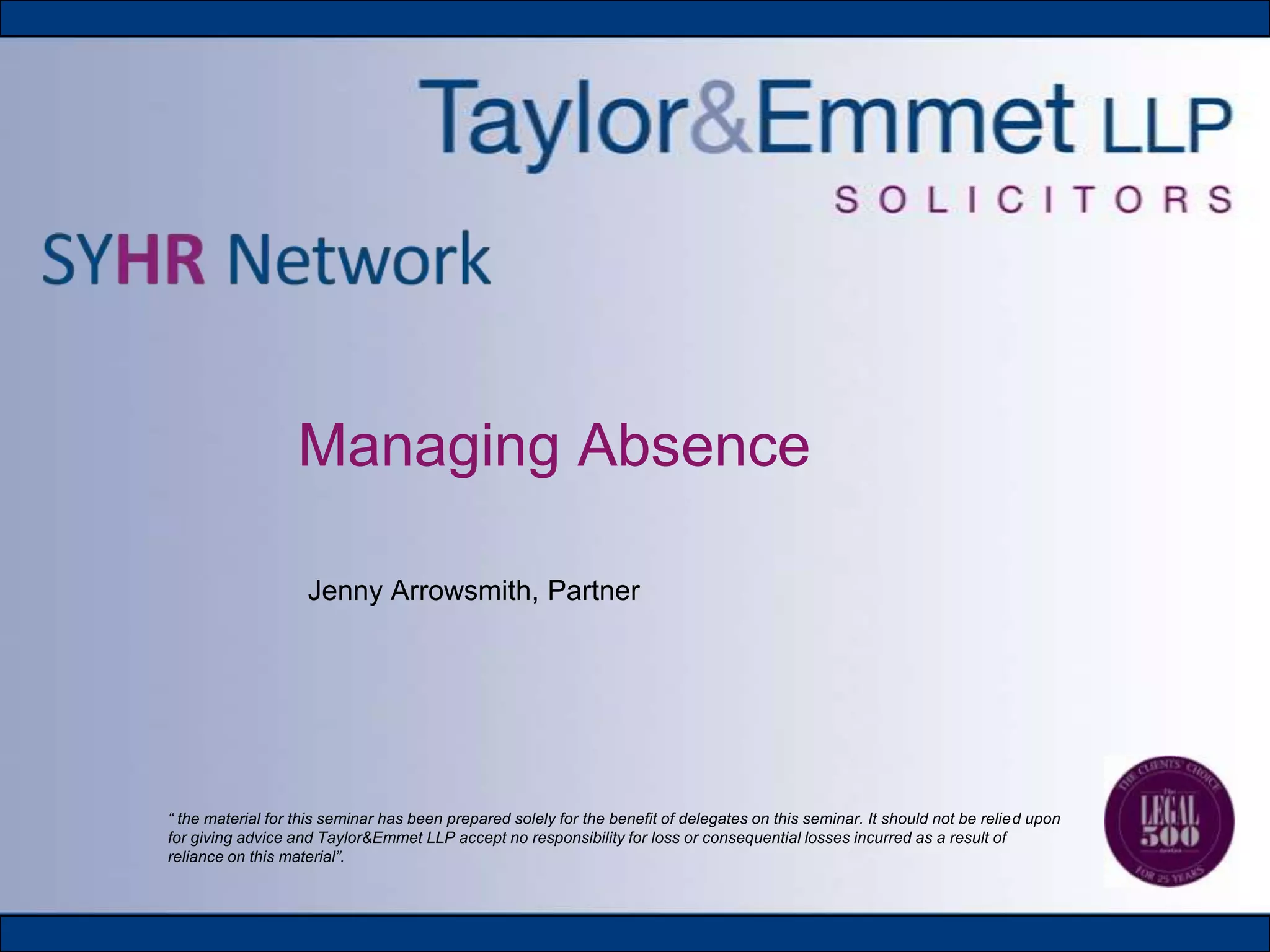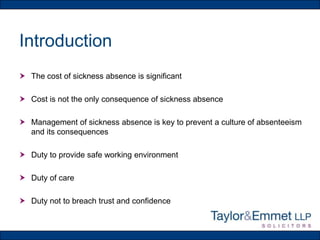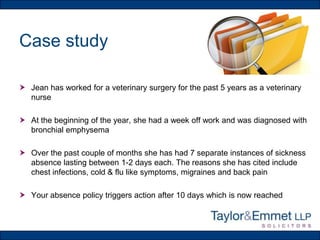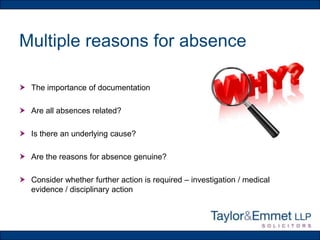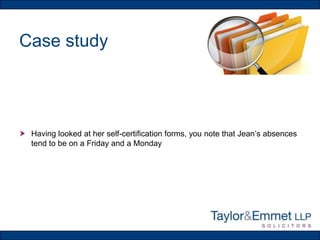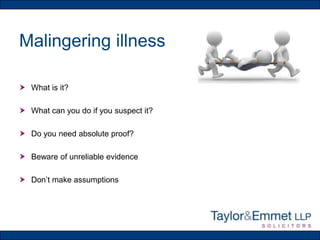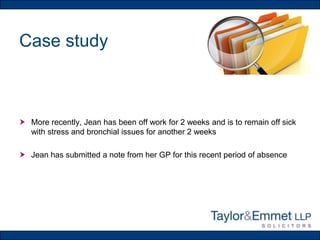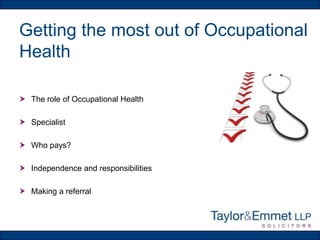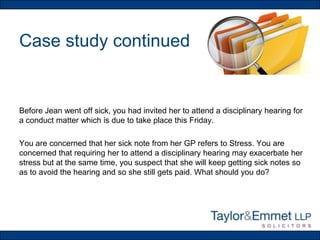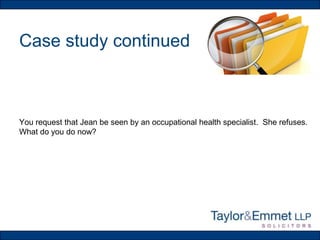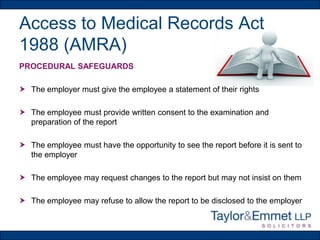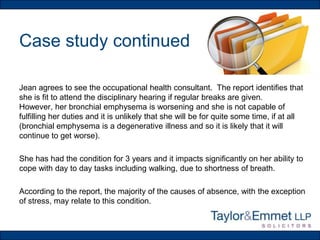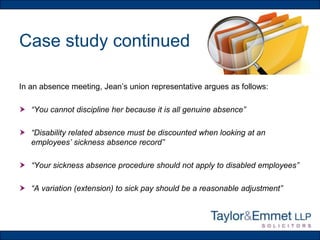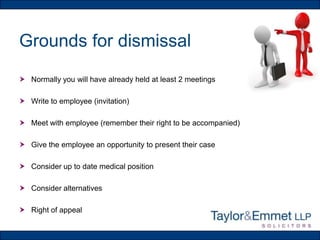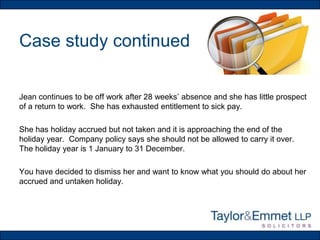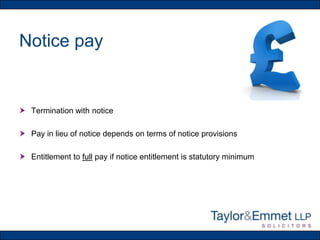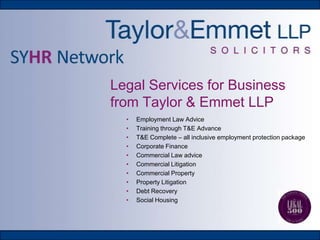This document provides guidance on managing employee sickness absence. It discusses the costs of absence, both financial and non-financial. It also outlines employers' duties of care and to provide a safe working environment.
A case study is presented involving an employee, Jean, who has had frequent short-term sick leaves. The document discusses evaluating the reasons for absence, considering underlying causes, and the potential need for investigations or disciplinary action. It also covers malingering illness, the role of occupational health, and managing disability-related absence through reasonable adjustments. The case study continues through Jean's prolonged sickness absence and potential dismissal.
